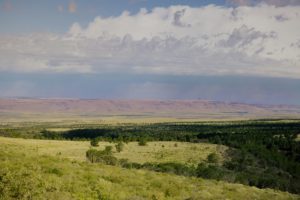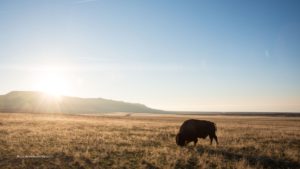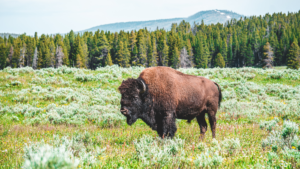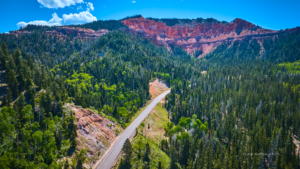For Immediate Release – April 18, 2019
Available for Interview: Jamie Drysdale, 802-249-8674. E: thejamiedrysdale@gmail.com
Contact:
Josh Osher, Montana Director, Western Watersheds Project, 406-830-3099
Sarah McMillan, Conservation Director, WildEarth Guardians, 406.549.3895
MISSOULA, Mont. – Local film-maker Jamie Drysdale’s documentary film, Lethal Control, will make its Missoula debut at the Roxy Theater on Friday, April 26 at 7 PM. The film was Drysdale’s final project while getting his masters of Environmental Journalism from the University of Montana. The documentary provides penetrating insights into the costs and consequences of USDA Wildlife Services’ use of M-44 ‘cyanide bombs’ to kill native predators at the behest of the livestock industry.
Drysdale traveled to Washington, D.C. to present the documentary at a congressionally-sponsored screening on Capitol Hill on April 2nd of this year. The film was introduced by Rep. Peter deFazio (D-OR) who is sponsoring federal legislation to make the use of M-44s — by federal agencies or anyone else — a criminal offense nationwide (photos available upon request).
“The stories surrounding M-44 cyanide ejectors that I encountered in my reporting were so raw, universally alarming, and so under-covered in the media,” said Drysdale. “I knew I had the potential to create something compelling that was personally meaningful and had a real chance to make a difference.]”
The film takes an up close and personal look at the impacts of lethal predator control focusing on the use by the federal government of M-44 cyanide ejector devices. M-44s are currently used by the federal government on both public and private land in 14 states, including Montana. These “cyanide bombs” have caused serious injuries to unsuspecting people and the deaths of beloved family pets, and other non-target animals.
In 2017, 14 year-old Canyon Mansfield, out for a walk with his dog Casey near their family home in Pocatello, Idaho, came across one of these devices which look like an odd sprinkler head. When he touched it a powdery substance exploded from the device. His dog Kasey died a horrifying death within minutes in front of him and Canyon has suffered long-term health effects from the poison.
“The Mansfield family’s reaction to the tragedy was to take action,” said Drysdale. “Canyon’s perseverance in his quest for justice for his yellow-lab was such an inspiration for me.”
“These cyanide bombs do not belong- they kill indiscriminately, cannot be used safely, and are a hidden and lethal hazard on public lands,” said WildEarth Guardians’ Conservation Director, Sarah McMillan.
In addition to Canyon’s story, the film also includes interviews with other M-44 victims (including Dennis Slaugh, who suffered long-term complications resulting from his poisoning by an M-44 before dying in
2018) current and former Wildlife Services employees, environmental professionals, scientists, and local law enforcement officials.
“It’s only a matter of time before an M-44 wreaks more mayhem,” said Josh Osher, Montana Director for Western Watersheds Project. “There is simply no excuse to keep using these indiscriminate killing devices, especially on our public lands.”
Jamie’s Bio
Jamie Drysdale grew up in Vermont and graduated from Ithaca College in 2006 with degree in Politics and Media. He moved out to Idaho shortly afterwards and through jobs as an outdoor educator and organic farmer, as well as a few summers in the US Forest Service, he became very well acquainted with the myriad of environmental issues interwoven with life in the West. Seeking to further his abilities to turn these issues into stories, Jamie pursued a graduate degree from the University of Montana in Environmental Science and Natural Resource Journalism, “Lethal Control” was his thesis film. Jamie Graduated in 2018 and now lives with his girlfriend, their two cats and their dog Blueberry in Stevensville, Montana.






